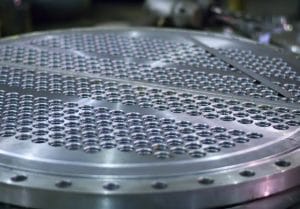 There are often more aspects to a company’s overall environmental footprint than the things that are most noticeable. For example, the direct impact of chemicals or other harmful substances seeping into the air and/or water nearby often leave obvious imprints. However, the totality of this impact can also include the quality of ancillary systems, such as the solutions that a company relies on to keep their electrical equipment properly cooled. Today, we explore how heat exchangers can operate in a way that’s consistently friendlier to the environment around them, and the extent of the impact this has had on many companies’ eco-friendliness.
There are often more aspects to a company’s overall environmental footprint than the things that are most noticeable. For example, the direct impact of chemicals or other harmful substances seeping into the air and/or water nearby often leave obvious imprints. However, the totality of this impact can also include the quality of ancillary systems, such as the solutions that a company relies on to keep their electrical equipment properly cooled. Today, we explore how heat exchangers can operate in a way that’s consistently friendlier to the environment around them, and the extent of the impact this has had on many companies’ eco-friendliness.
The environmental impact of electrical cooling
Electrical cooling solutions have always impacted a company’s efficiency and productivity. They’ve dictated how consistently a company’s technological solutions operate, as well as how much energy companies need to invest in and how much downtime certain mechanical and electrical systems require due to repairs and maintenance issues. For example, conventional cooling systems, such as air conditioner, were often high-maintenance and required large amounts of energy to accomplish their electrical cooling processes. However, with modern heat exchangers, electrical cooling is streamlined and these needs are significantly reduced or eliminated. This means they’re more efficient to operate, and they can function without creating a larger environmental impact in the process.
How heat exchangers lower that impact
The energy and maintenance needs of traditional electrical cooling systems play important roles in their eco-friendliness. The more energy the thermal management system requires, the more energy and resources the company has to invest in. This makes energy efficiency a more difficult goal to accomplish across the entire organization. Heat exchangers are able to lower the impacts of electrical cooling by transforming the processes that it relies on. Most importantly, heat exchangers eliminate the common reliance on cold air that conventional cooling solutions utilize, and that takes up much of the cooling system’s energy requirements.
The influence of transferring heat on other initiatives
The impact of transferring waste heat as part of a company’s core electrical cooling processes has been significant in several different areas. The reduced need for energy has led to significant reductions in companies’ overhead costs, and the limited need for maintenance and repairs has helped companies substantially boost their productivity. In companies that are especially diligent in becoming more environmentally friendly, heat exchangers have also become a catalyst in helping to lower the environmental footprints of many other processes. For more information about how heat exchangers are friendlier to the environment, call Noren Thermal Solutions in Taylor, TX, at 866-936-6736.







